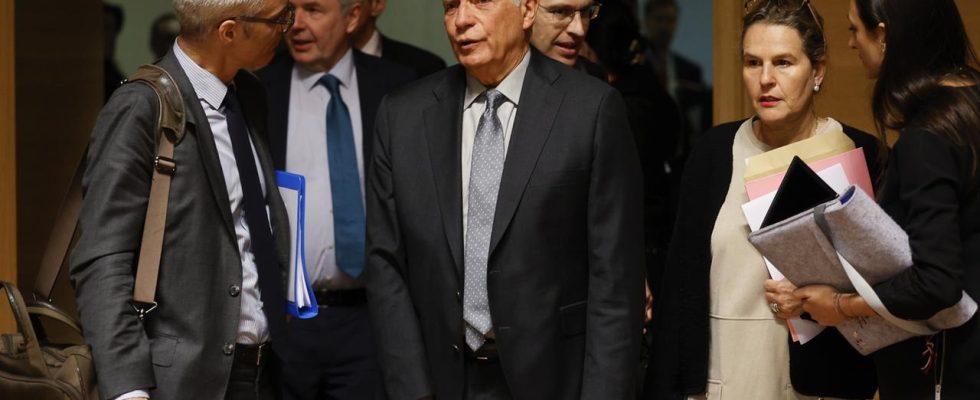At their monthly meeting, the EU foreign ministers dealt with the crisis in Sudan. After the evacuations of the past few days, it is now important to help the people in the country, according to the ministers. China’s attitude was also an issue.
The Europeans’ chief diplomat, the Spaniard Josep Borrell, seemed exhausted when he arrived in Luxembourg. “It’s been a long, intense weekend,” he told the waiting journalists before talks began.
Concern for Sudan
In order to get as many Europeans as possible out of Sudan to safety, a lot of telephone calls had been made between Brussels and the capitals. Who still has space on the plane, who could take more than their own citizens with them? In the morning, more than 1,000 people from Sudan had been brought to safety. In eleven flights on Sunday, 20 more flights followed until Monday afternoon.
Borrell thanked France for flying out the staff of the European Diplomatic Service, Austria’s Foreign Minister Alexander Schallenberg thanked Germany. There was a threat of civil war, said Schallenberg, which is why he was in contact with his German counterpart, Annalena Baerbock, and thanked her. Thanks to German and French support, it was possible to get almost half of the Austrians out of the country.
What about those who stayed?
The real catastrophe, which Europe’s foreign ministers also agreed on, is now threatening the people who cannot leave Sudan. Around a third of the population, around 16 million people according to the United Nations, need outside help to survive.
From a European point of view, it is also about stability in the entire region of north-east Africa. According to EU chief diplomat Borrell, Sudan must not implode, otherwise it would send shock waves across Africa.
Many people have already fled to neighboring countries: to Egypt, Chad and South Sudan. The EU’s aim remains to mediate and find a political solution in the power struggle between the country’s two rival military leaders. As a sign that the EU is not abandoning Sudan, the security chief of the European External Action Service is staying in the country for the time being.
An affront to the Chinese ambassador
The foreign ministers in Luxembourg had to deal with another sensitive story from the weekend, albeit from a completely different region. An interview with the Chinese ambassador in Paris triggered a storm of protests. Especially in Eastern Europe. The countries that were formerly part of the Soviet Union, Ambassador Lu Shaye explained in an interview with the French news channel LCI, have no effective status. In other words, they are not essentially sovereign states.
“Completely unacceptable,” thundered back almost unanimously from several European foreign ministers, especially the Baltics. And Czech Foreign Minister Jan Lipavsky said he can only hope “that the heads of this ambassador will put things right.”
A kind of correction came from Beijing in the afternoon. “China respects the sovereign status of the former Soviet republics after the dissolution of the Soviet Union,” said a Chinese foreign ministry spokeswoman. China’s position is “steady and clear”.
Deviated from the diplomatic path
Nevertheless, distrust remained at the EU foreign ministers’ meeting – and a question mark. Could it be that the Chinese ambassador really acted on his own? Or should he simply test the pain threshold of the Europeans on behalf of his government in Beijing?
The French daily describes Lu Shaye as an ambassador who often “deviates from the diplomatic path” and is known for polemical exaggerations. During the three years in Paris he had been summoned to the Quai d’Orsay several times and called to order. And once, as Liberation expressly emphasizes, he simply did not show up for the call-up. Whether such disregard has ever occurred before in the history of the Quai d’Orsay, Liberation leaves open.

